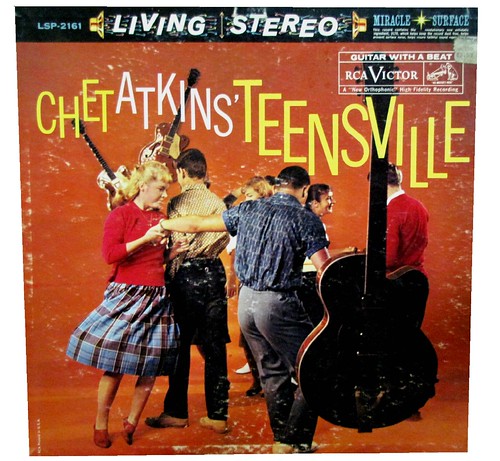It's rare to have recordings of someone like Mr. Blake from so far back in time as this. Well, as close as we can get... This record consists of re-recordings of some of Eubie's hand played player piano rolls from 1917-1922. In fact in 1972 when this compilation was assembled Eubie Blake personally oversaw the recording of the player piano to make sure all the tempos were correct. As a musician, Eubie continued to perform until the ripe old age of 96. These tune call to mind silent movies, flickering B&W images that seem so light and happy on the surface, but through the cracks you know there's something darker lurking. Never being loosed, but still peeking out of the closet. Happy haunted music of a by gone era.

Figured I'd use this blog to catalogue my record collection. I'll be providing some technical information on the albums as well as my thoughts. My collection is non-genre specific. I keep the bulk of them alphabetized by Artist. However, I also maintain a section I refer to as the esoteric field, which contains unusual records, and artists I wouldn't remember the name of if they weren't in this category. The Classical and Compilation albums are also in separate sections.
Monday, November 23, 2015
Black Sabbath:
Paranoid: (1970)
Well, it's a classic, ain't it? I've never been the hugest Sabbath fan, or Ozzie fan for that matter, but this album is a classic. And while it stirred quite a few pots when it was released, it seems fairly tame now. War Pigs is a great political start to any album, and here it establishes Sabbath's second album as arrived more fully formed than their first effort. Paranoid has a youthful honesty to it that they seemed to lose as substance, and fame drove the band to be overcome by their own personas. If you can't name a song off this album, you're probably not much a Rock fan.
Thursday, November 19, 2015
Black Flag:
Everything Went Black: (1982)
This album, this band, is that friend who came to the party just to be disruptive. Just to poke the monkey, and fuck shit up. Then left a treasure map on the kitchen counter of where to find your youthful indignation. With production values that sound like the band is in the next room shaking the walls, nothing is hidden, and all is given away. You need to play this album loud!
Big Star:
#1 Record: (1972)
Radio City: (1974)
If you know these records, you love these records. Big Star is one of those bands, like the Velvet Underground, that may not have sold many albums, but everyone who bought one either started or drew their influence into their existing band. It's hard for me to believe these weren't hit records. It's always extremely interesting when a band can tap into making music that's new, but feels familiar. Not in a derivative way, but more in a "I don't know this song, but I feel like I have know it in a past life" kind of way. That's the feeling I got the first time I heard Big Star. I arrived at the Big Star party late, and even when I did it was through the Replacements' invitations on Pleased To Meet Me with songs like, Alex Chilton. These two albums don't feel like two different albums, but rather, a continuation of a conversation with a friend.
Labels:
album collection,
Alex Chilton,
Big Star,
Memphis,
music,
pop,
rock,
Til Willis
Wednesday, November 18, 2015
Dickey Betts:
Richard Betts:
Highway Call: (1974)
Highway Call: (1974)
During my period of Allman explorations around the age of 13/14, I picked up three Dickey Betts solo records. The first being Highway Call. A slice of Country Rock with some great players like Vassar Clements, and Chuck Leavell. This album captures Dickey perfecting the laid back country direction he would lead the Allmans into in the wake of Duane's passing.
Dickey Betts & Great Southern: (1977)
Think Allman Brothers lite, and that's Dickey Betts & Great Southern. There's some good guitar exchanges, but it's definitely a product of its times, and comes across as dated now. However if you're in the mood for Southern Rock, you could throw this on, and most would probably mistake it for a later Allman Bros. record, tapping their foot. Oh, and Don Johnson (a.k.a. Crockett) sings backup on this album.
Atlanta's Burnin' Down:(1978)
Of the two Great Southern albums I own, I like this one best. It seems more like a separate thing from Dickey's daytime gig (at that time) in the Allmans. The title track is a key track, even if it's a bit of an overdone Civil War ballad. Dealin' With The Devil has an element to it that reminds me of some Zappa tunes, albeit simplified Zappa with a Southern accent.
Chuck Berry:
On Stage: (1963)
Chuck Berry, one of the fathers of this religion known as Rock'n'Roll, and a formidably force of nature. When I first got an electric guitar the opening riff to Maybelline was one of two riffs I desperately wanted to learn to play. On Stage isn't really a live album, oddly enough, it's a studio album with audience sounds overdubbed on it. Why? I'm not sure. Probably a clever attempt to rerelease some of Chuck's back catalogue. Never the less it's a cool record of previously released tunes, and one alternate take. Another curiosity is that Surfin' USA is listed on the cover, but isn't on the album. In its place is the Berry song Sweet Little Sixteen, the song on which Surfin' USA was based. This to me is such a Punk Rock tactic to try and steal back what was stolen from him, and bring some of that young white audience back with it. Genius!
San Francisco Dues: (1971)
While Chuck's heyday may have been the late 50's, I find his 70's stuff to be more interesting. The hits had dried up, except for the song My Ding-a-Ling, and the albums during this time period, while searching, seem freer than pervious efforts. Case in point, My Dream (Poem). A six minute recitation that wouldn't be totally out of place on a Lou Reed record. I also like the trend of this era of just adding Wah-Wah guitar for the hell of it, simply because it was the "in" thing to do, and on this record, like so many, interesting things happened.
The London Chuck Berry Sessions: (1972)
Of Chuck Berry's 70's output, this is the high point. Half studio, half live, it was certified gold after being out only two weeks. Mainly because of the success of the single My Ding-a-Ling, a sexually naughty song like only Chuck Berry could make seem so innocent and dirty all at once on radio airwaves. This is a cool album, even if Chuck's voice seems a little worn out, he's still going for it. I saw hime a couple years ago, and he's still going for it, even when he has no real intention of hitting it. So very Rock'n'Roll.
Rock It:(1979)
Will this be the last Chuck Berry studio record? As of right now it looks that way. This is kind of a stagnant album. It seems like the inspiration was running low here. The musicianship is on, but lacking a real spark. The rerecording of Havana Moon is nice. I suppose this is the retirement record for Chuck, even though he has continued to perform regularly up to the present.
Tuesday, November 17, 2015
Tony Bennett:
I Left My Heart In San Francisco: (1962)
Of the crooners, I dig Tony's voice the most. He has that extra little something. It's a twinkle that's still there these days. But, all that said, this is the only album of his I own. I have a few singles on 78s, but this is the only album. And what an album it is, dreamy, and romantic. It the kind of album that makes you feel a little more cosmopolitan just for listening to it. Now, how many albums, performers can elevate the class of a room? In Sinatra I always heard more Earthly struggle, so much to the point that I could almost see his worldly tether. Tony Bennett has this free unencumbered spirit that effortlessly escapes his mouth every single time he opens it. The kind of voice that would make you feel something even if you were just a bellhop getting a call for room service, "Ah, yes, this is Tony Bennett, I'd like a cheeseburger and a bottle of Beaujolais." "My pleasure mr. Bennett." Of course this album contains a song that would become one of his signature tunes, I Left My Heart In San Francisco, so I don't need to list a key track, you've already got this one in your head.
Adrian Belew:
Lone Rhino: (1982)
This album was given to me by an older friend who said, "You have to have a copy of this album." I liked Adrian Belew's contributions to Talking Heads, and Bowie albums so of course I took it. Who am I kidding, I rarely turn down vinyl. Usually when an artist described as a guitar wizard, and connected with a band like King Crimson releases an album I find it tedious and over worked. However, that's not the case here. This album is quirky and fun with darkly satirical lyrics. The guitar trickery is mainly used as atmosphere, which I always dig. This album also has a funny surreal cover that I love, and in a rare case, it perfectly fits the music contained in the grooves. If you've never heard this record the tracks to look up are The Lone Rhinoceros, and Big Electric Cat. Those two will tell you all you need to know about this album.
Monday, November 16, 2015
Harry Belafonte:
Mark Twain and Other Folk Favorites: (1954)
There aren't enough words to tell how great Harry Belafonte is as an entertainer, and as a human being. Since I was a kid, I've thought Harry Belafonte was one of the most dignified men I've ever seen. Then the more I learned about his politics, and activism the more I respected this giant of a man. This album, "Mark Twain", is his debut.
Belafonte: (1956)
Calypso: (1956)
1956 began a four year run where Belafonte would release two albums a year. These days if anyone can name a song Belafonte did it's usually Day-O (the Banana Boat Song) from the album Calypso. And most know it from Beetlejuice. Calypso was the first album to sell a million copies, and it paved a wide road to popularizing Jamaican and Caribbean music.
Harry Belafonte/The Islanders:
Sings Five Early Songs: (195?)
This is a cool split album between Harry Belafonte (Side A) and the Islanders (side B) that is very much in the vein of his album Calypso.
Belafonte Sings of The Caribbean: (1957)
My Lord What A Mornin': (1959)
Swing Dat Hammer: (1960)
Belafonte uses each album to highlight different groups of people with a deep empathy that msnifests in the sincerity with which he sings. Swing Dat Hammer was a collection of chain gang songs, and it won Belafonte a Grammy.
Belafonte at Carnegie Hall: (1959)
If you were going to own just one Harry Belafonte album, this should probably be the one. It was the first of two albums recorded at Carnegie Hall, and it captures the man in all his glory and commanding stage presence. It was also nominated for an Album of The Year Grammy.
Jump Up Calypso: (1961)
Another cool album by Belafonte. This one features the Trinidad Steel Band.
Midnight Special: (1962)
In addition to an awesomely badass album cover, this album marks the official recording debut of Bob Dylan, who played harmonica on this album.
Streets I Have Walked:(1963)
Calypso In Brass: (1966)
Though Calypso in Brass contains songs Belafonte had perviously recorded, here they have been rearranged with a brass band, which makes this a lively album. Key track here is Zombie Jamboree.
Labels:
album collection,
Bob Dylan,
brass,
calypso,
folk,
Harry Belafonte,
music,
pop,
Til Willis
Saturday, November 14, 2015
Beirut:
March of the Zapotec/Holland EP: (2009)
This was the first album I heard by Beirut, which is Zach Condon, and really it's not an album, it's two EPs in one package, and they couldn't be more different. March of The Zapotec features a 19 piece brass band from Oaxaca, Mexico. This part of the album spirits you away to another realm, and another time. The other part of the album, Real People of Holland EP, is light and whimsical and electronic. The old and the modern living hand in hand.
The Riptide: (2011)
This is my favorite Beirut album. This one feels fully realized. The atmosphere on this record is excellent as well, giving each song a wonderful lift. For me the key tracks here are: Payne's Bay, and East Harlem.
Labels:
acoustic,
album collection,
Beirut,
folk,
indie,
indie folk,
music,
rock,
Til Willis,
vinyl,
world
Bee Gees:
Bee Gees' 1st: (1967)
Despite the title, this is the group's third album. Now, I'm not the biggest Bee Gees fan, but they have written some good songs, mainly in this early period. And this album contains what I think is their best. I venture to say I think it's one of the all time best love songs ever written. By that, I'm talking about, To Love Somebody. Covered numerous times, my favorite being the Gram Parsons/Emmylou Harris version, this is the original. And for being just out of their teens here, they nail it.
Labels:
album collection,
Bee Gees,
music,
pop,
rock,
Til Willis,
vinyl
Friday, November 13, 2015
The Beatles: part 2
Hey Jude: (1970)
OK, the official Beatles albums are out of the way, so here are these... Hey Jude is one of many Beatles albums that collected odds and ends, and fashioned them into a release. Hey Jude is a fine compilation, with the key tracks for me being Don't Let Me Down, and Paperback Writer.
The Beatles / 1967-1970: (1973)
Another killer compilation collecting singles, and highlights from the illustrious Beatles' career.
Rock'N'Roll Music: (1976)
Another compilation of tunes spanning their career. Only this time with hideous artwork. Of this artwork Lennon said it, "looks like a Monkees reject."
Live! at The Star Club in Hamburg, Germany; 1962: (1977)
There aren't many live Beatles albums, mainly because they quit performing live right as the technology to capture live shows in a clean way was coming around. That said, the fidelity of this album is alright. It definitely captures the energy in the room during these performances.
The Beatles at The Hollywood Bowl: (1977)
This live album contains two live performances The Beatles did at The Hollywood Bowl, one from '64, the other from '65. George Martin oversaw the recording so it's as good as it could be at the time. And in fact, the fidelity is quite good.
The Beatles: part 1
The Beatles' Second Album: (1964)
Any day you can start listening to the Beatles has to be a good day, or at least a good start. There are eleven album sin this section of the collection, well fourteen, because some I have duplicates, just in case. Anyway, it starts with this album, "The Beatles' Second Album", which was just the second that Capital Records released, and in fact the eighth to bare the name Beatles that had been released between 1963 and 1964. Though mostly covers this is just as charming an album as anything they released.
Revolver: (1966)
I'm always blown away at how fast the Beatles evolved musically, it really was leaps and bounds. So Revolver, considered by some to be the best Beatles album, as if that could be quantified. I try to imagine just how out of left field revolutionary these album must have been to hear when they first came out. At this point in history, most are so familiar with their catalogue that the music just seems common place, but when I hear the bass line on Taxman, or the single chord and bird noise on Tomorrow Never Knows, I have to think that if I was a kid who had heard Love Me Do, and rushed to the store to buy this album, I would have my mind blown in a serious way. Oh wait, I did have that experience as a kid, I just had to look through my parents' record collection.
Sgt. Pepper's Lonely Hearts Club Band: (1967)
I know this album is supposed to be the penultimate Beatles/60's album, but while I like this album, I don't think it's as strong as some of their other work. Sure it was innovative, and I've enjoyed countless hours reading about it's making, watching video footage etc... I find it to feel a bit forced, unlike Rubber Soul, Revolver, or The White Album. But, again, they were bringing in so many new influences to the pop world that the power of this album can't be denied.
The Beatles "The White Album":(1968)
This, this is my favorite Beatles album. I love how sprawling it is in its musical reach. I love the rawness of it. I feel like this was the Fab Four at their creative zenith. Where Pepper felt labored over, this feels free and organic and the essence of that Rock'n'Roll freedom I admired since I was first hearing this music. If most albums are a train that you get on with the first song to take a journey to the final song, then this album is wardrobe that allows you to step into another dimension. Or maybe that's just my fanciful imagination running away again.
Let It Be: (1970)
Now, some are going to say, "hey buddy, these are out of chronological order." But, as serious fans know, this album was recorded before Abbey Road, and in my mind if you're listening in order this one should be here. It paints a more accurate picture of the Beatles' evolution, and you can see how they arrived at their inevitable conclusion. That freedom and rawness of the White Album comes to a head on this album, and the tensions bubble over. You can hear it in the vocal performances on I've Got A feeling. I really have always dug the looseness of this record. On this one the Beatles finally reach a place the Stones had gotten to much earlier. A place I love, which is ragged and frayed, desperate almost.
Abbey Road: (1969)
This is the, "OK, for the sake of all that's holy, we should get ourselves disciplined again, and bring back George Martin, and go for broke to right the ship," album. Which did and didn't work as history shows. It's a timelessly awesome album, I in fact own it in three different media forms (vinyl,cassette,reel to reel, and CD). It's always best to go out on a high. And They did. Anytime a band can call it a day with the final recorded statement, on the final recorded album as a band, "the love you take is equal to the love you make", than you've done your work very well. Obviously the world has thanked them very well for their work. I've always been a firm believer that if the Beatles would've just taken a break from one another, and made solo albums years before the tensions got bad, say right after the White Album, that they would have lasted much longer. But, as my mother used to say, "If 'ifs' were skiffs, we'd all go sailing."
Thursday, November 12, 2015
Count Basie & His Orchestra:
Kansas City Suite, The Music of Benny Carter: (1960)
Sometimes you're in the mood for the feeling that only big band jazz can give. Count Basie specialized in that feeling, and few did it better. That's why he was at the top in his era of music. However, by the time this album was released in 1960, his era was over. Of course he was still good, and played venues all over, but his relevance had slipped. Miles, Dizzy, Bird, Coletrane, and Teddy Edwards had dethroned the Count. This record, for me, conjures up a bygone moment in time, and brings a peaceful mood to the room.
The Band:
The Last Waltz: (1978)
It seems criminal that this is the only piece of vinyl I have by the Band. I have tons of CDs and Cassettes, and there really couldn't be a band that means more to me emotionally. They were the soundtrack to my childhood. Thanks God my folks weren't into Journey or Kenny Loggins. The Band were amazing, every member was so good individually that collectively they could soar like no other, and do it in any genre they wanted. Seriously, if you aren't familiar with the Band, pick up The Last Waltz, which was a recording of their last performances together. Either the album or the movie will suffice. I can't count how many copies of the movie I've given as gifts. Now, I know that they reunited, well some of them, as The Band in the late 80's, but it wasn't the full band and it paled for me, because with out all the ingredients you can make something that looks like a cake, but it don't taste the same. With The Last Waltz, it's interesting to listen to a band try to tell their musical story onstage with guests from different musical walks, all the while weaving in their own material, and succeed at it. I think the thing that impresses me most about the Band, and in particular this album, is how honest the music feels.
Wednesday, November 11, 2015
Hank Ballard and The Midnighters:
Singin' and Swingin': (1959)
This album is a killer. A great piece of rough and ready R&B, and it's got the original version of the Twist on it too. That's right, it was not a Chubby Checker original. I also love how dirty the guitar tone is on all the Hank Ballard stuff. Do yourself a solid, and look up Whatsonever You Do. Such a great track. It's easy to see why some consider Ballard to be one of the first Rock'n'Roll artists. While never as recognized as some of his contemporaries, which is why the Chubby Checker release hurt so much, Ballard trudged on making records that kicked ass. He was inducted to the Rock'n'Roll Hall of Fame in 2012.
Bad Company:
Straight Shooter: (1975)
Having this album in the collection might be a bit cheesy, but since I was a kid I liked the song Shooting Star. As far as 70's rock albums go, this one is actually pretty tame. Only many years later did I learn about the connection to Ronnie Lane, as Bad Company were using his mobile recording truck to record this album... in a fucking castle. Which, come on, that's cool. Aside from the hit tunes, a lot of critics said that this album didn't have enough strong songs to support a whole album. However, I've always dug Weep No More, which kind of reminds me of a Little Feat tune for some reason. Anyway, there it is...70's Big Rock from the collection.
Tuesday, November 10, 2015
Burt Bacharach:
Reach Out: (1967)
Some things in the collection beg the question, "Why do I have this?" This is one of those albums. It's an alright compilation of Bacharach's instrumental tunes. Guess if you need background for a 60's themed party, this would come in handy. But in the attempt to listen to the entire collection, I have to write a little something. This isn't bad by any stretch of the imagination, just sedate and snoozy. The original Muzak, I suppose.
B-52's:
Wild Planet: (1980)
Is there a more fun band than the B-52's? This second album is a classic, full of all the quirk they were known for putting on display. From the opening line by Fred Schneider, "Surprise!" (you just said that in your head in Fred's voice, didn't you.) to the credits acknowledging the hairdresser, this album couldn't pop more. Private Idaho, and Devil In My Car are personal favorites.
Mesopotamia EP: (1982)
The B-52's produced by David Byrne, what more do you need to know? It spawned some chart success, but I find to be one of the quirkier 52's albums. Perhaps because it's out there, but trying to reach for the middle.
Labels:
album,
B-52's,
music,
new wave,
pop,
record collection,
rock,
Til Willis
Hoyt Axton:
Less Than The Song: (1973)
I love this album, its gentle bluesy acoustic riffs, its evocative lyrics just wrap around you like the big arms of the man himself. That said, I knew Axton as an actor, specifically as the Dad on Gremlins, before anything. Then I was hipped to the fact that he had written a song I've always dug, I've Never Been To Spain, which lead me to reading more about him. Damn, he lived quite a life. I came across this album for twenty-five cents in a bin at a thrift shop, and with the first play, I loved it. When this came out in '73 Rolling Stone said it was, "one of the most rewarding achievements by a singer/songwriter." I would suggest a key track for you to check out if you haven't heard this album, but really you should hear it all. So, see if you can pull it up on one of the many avenues online, or search your local record store. This really is a gem.
Monday, November 9, 2015
Gene Autry:
Back In The Saddle Again: (1966)
A nice compilation of Autry's singles from 1939 to 1946. This is quintessential Americana in look and feel, with music that blends genres from country to folk to jazz to gypsy to pop. What's not to like? Sure, it's not the gritty scratchy slice of Guthrie or Hank Williams Sr. You can't taste dust in your mouth, and the sun doesn't make your eyes squint in these tunes. But, it's as authentic as the cowboy image we've come to love from movies that never existed either. Now, I'm much to young to have grown up being influenced by seeing Gene Autry sing and act in films, but when I listen to this stuff it makes me feel about six years old again.
Labels:
album collection,
Americana,
country,
folk,
Gene Autry,
jazz,
music,
Til Willis
Chet Atkins:
In Hollywood: (1959)
Chet Atkins is one of those towering figures in music of the last century. For a long time he was the music business. His guitar playing shaped so many players like George Harrison, Mark Knopfler, and Brian Setzer to name a few. That said, among his records some are better than others. In Hollywood is pretty snoozy, and to my ear, uninteresting.
Mr. Guitar: (1959)
This album on the other hand is the kind of Chet Atkins record I want to hear with great straight ahead guitar jams like only Chet can deliver. After all, he was Mr. Guitar.
Teensville: (1960)
More uptempo ditties from Mr. Guitar, this time trying to get in on the music those crazy teenagers were diggin'. From the perspective of many decades removed, it seems like an interesting piece in his catalogue, but thinking of it in its time, it seems very out of touch. Key track to look up here is Boo Boo Stick Beat, cool tune for sure with a great bassline.
The Most Popular Guitar: (1961)
When I was five or six I saw this album in my grandmother's house. I thought it was the best album cover I had ever seen...can't imagine why... This is still one of my favorite Chet Atkins records. It's a nice blend of his guitar work with orchestration, and multiple genres. Check out track one, It Ain't Necessarily So.
Chester and Lester:
Chester & Lester: (1976)
Guitar Monsters:(1978)
As a guitar player it's hard to pass up a record with two of the greats playing together...even when they get snoozy. Here of course are Les Paul and Chet Atkins cakewalking through impossible guitar riffs that they could play in their sleep. No doubt the two men had fun making these records. Chet made good duet records. I really loved the first Mark Knopfler/Chet Atkins album Neck'n'Neck. These are great lazy Sunday morning albums to toss on when the sun is shining.
Labels:
album collection,
Chet Atkins,
country,
guitar,
jazz,
Les Paul,
music,
pop,
rock,
Til Willis
Subscribe to:
Comments (Atom)



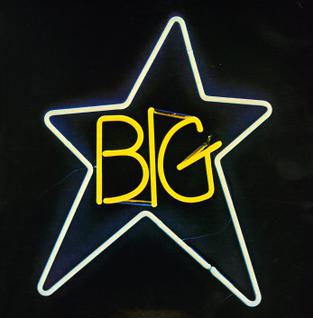


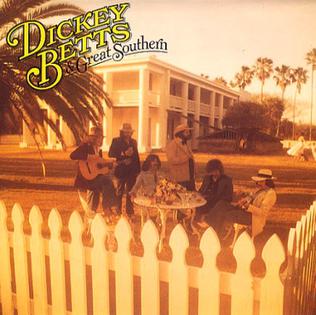



:format(jpeg):mode_rgb()/discogs-images/R-1177764-1327015446.jpeg.jpg)




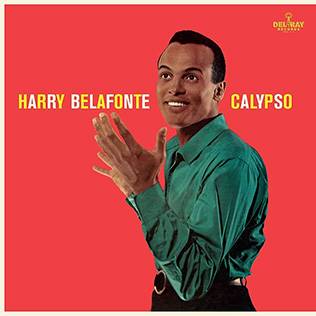
:format(jpeg):mode_rgb()/discogs-images/R-1662630-1361422288-6671.jpeg.jpg)
:format(jpeg):mode_rgb()/discogs-images/R-1436596-1271690996.jpeg.jpg)






:format(jpeg):mode_rgb()/discogs-images/R-3588748-1426317266-4680.jpeg.jpg)

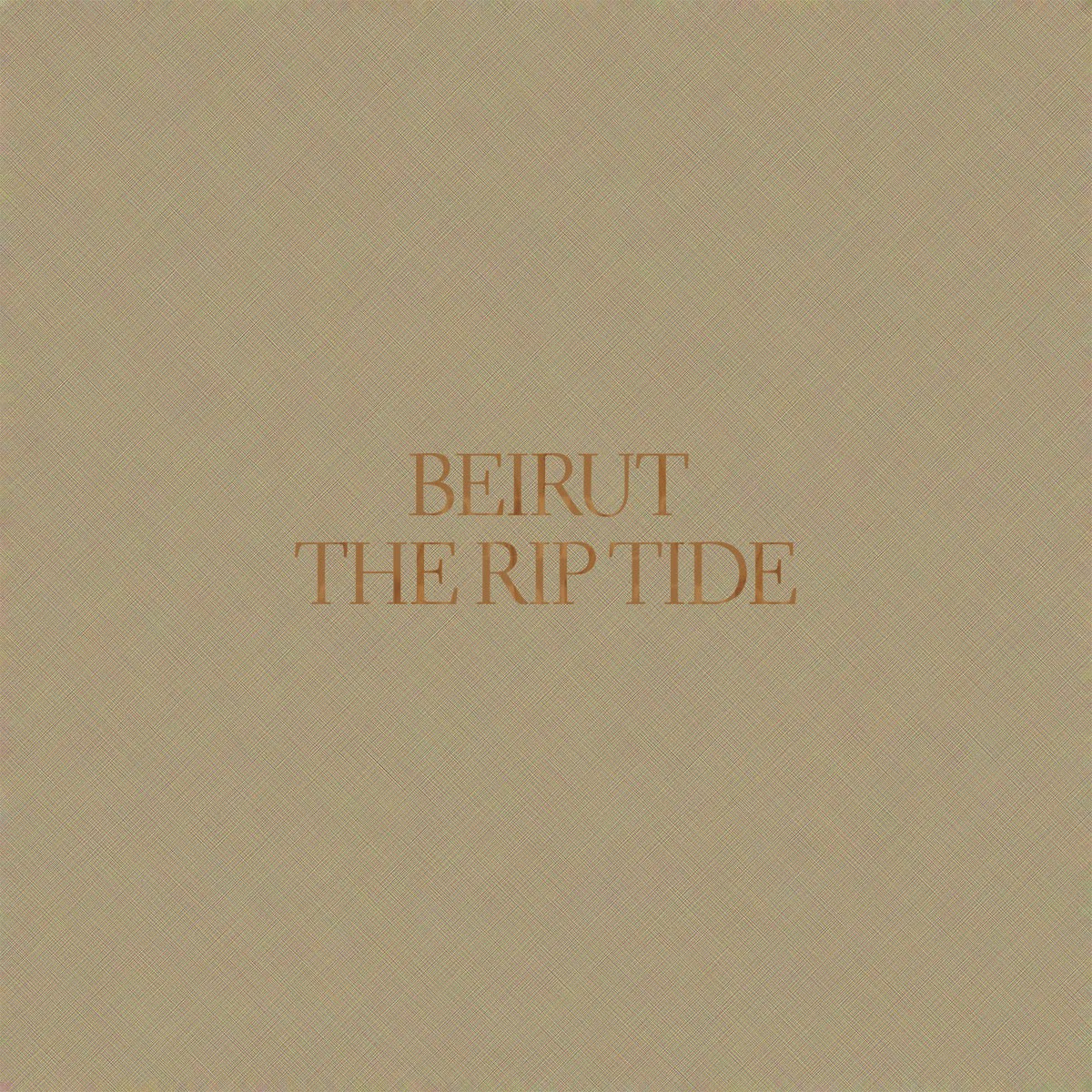



.jpg)













.jpg)




